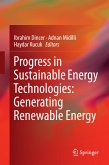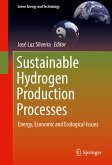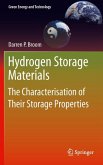This book focuses on the fundamental principles and latest research findings in hydrogen energy fields including: hydrogen production, hydrogen storage, fuel cells, hydrogen safety, economics, and the impact on society. Further, the book introduces the latest development trends in practical applications, especially in commercial household fuel cells and commercial fuel cell vehicles in Japan. This book not only helps readers to further their basic knowledge, but also presents the state of the art of hydrogen-energy-related research and development. This work serves as an excellent reference for beginners such as graduate students, as well as a handbook and systematic summary of entire hydrogen-energy systems for scientists and engineers.
Dieser Download kann aus rechtlichen Gründen nur mit Rechnungsadresse in A, B, BG, CY, CZ, D, DK, EW, E, FIN, F, GR, HR, H, IRL, I, LT, L, LR, M, NL, PL, P, R, S, SLO, SK ausgeliefert werden.









